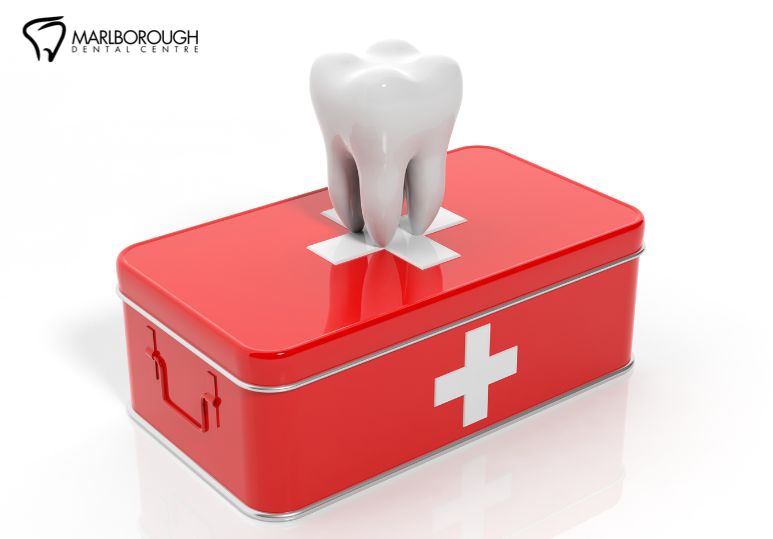Dental emergencies can strike unexpectedly, causing not only discomfort but also anxiety. It's often difficult to know what constitutes a dental emergency, how to manage the pain, and when to seek immediate care. This comprehensive guide aims to demystify common dental emergencies. We'll discuss how to recognize them, what steps you can take at home, and the importance of timely professional intervention. By understanding these aspects, you can minimize discomfort and prevent further complications, ensuring your oral health is maintained.
Toothaches
A toothache is often the body's alarm system indicating something is wrong. The causes are varied, ranging from cavities and gum disease to an abscess or impacted tooth. The pain might be sharp and sudden or a dull, persistent ache. In any case, a toothache should never be ignored. Home remedies like rinsing with warm salt water can provide temporary relief, and over-the-counter pain relievers can help, but they are not solutions. A dentist can identify the cause and recommend appropriate treatment, which might include fillings, root canals, or other dental procedures.
Chipped or Broken Teeth
Chipped or broken teeth can occur from accidents, sports injuries, or even biting down on something hard. This emergency can cause sharp pain, particularly if the break exposes the nerves inside the tooth. If this happens, rinse your mouth with warm water and apply a cold compress to your face to reduce swelling. If you can find the broken tooth fragment, bring it to your dentist. They may be able to reattach it or offer other restorative options like crowns or veneers. Immediate dental care can prevent infection and further damage, and it also helps in preserving the tooth's appearance and functionality.
Knocked-Out Teeth
A knocked-out tooth is one of the most urgent dental emergencies. If you act quickly, there's a good chance the tooth can be saved. Handle the tooth by the crown, not the root, and rinse it gently if it's dirty. If possible, try to place the tooth back in its socket and hold it there, or keep it moist in milk or saliva. Time is critical in this situation; getting to a dentist within an hour can significantly increase the odds of successfully reimplanting the tooth. Remember, a knocked-out permanent tooth is a situation where the sooner you act, the better the outcome.
Gum Injuries
Injuries to the gums, such as cuts or tears, can occur from accidents, falls, or even biting on food. These injuries can be painful and, if not treated properly, can lead to infection and other complications. Rinse your mouth with a mild saltwater solution to clean the wound and use a cold compress to reduce swelling. Avoid aspirin or ibuprofen as they can increase bleeding. Seeing a dentist as soon as possible is crucial for proper treatment, which may involve cleaning the wound, sutures, or other interventions to ensure proper healing.
Lost Fillings or Crowns
Sometimes, fillings or crowns can come loose or fall out, which can be both surprising and discomforting. This situation can lead to sensitivity and pain, as the exposed tooth tissue is often sensitive to pressure, air, or temperature. If a crown comes off, try to keep it in a safe place and avoid chewing on that side of your mouth. Over-the-counter dental cement can temporarily reattach the crown, but this is a temporary solution. Visiting a dentist promptly is essential for a permanent fix, which might involve a new filling or crown.
Abscesses
An abscess is an infection at the root of a tooth or between the gum and a tooth. It's a serious condition that can lead to pain, swelling, and a host of other systemic problems if not treated promptly. An abscess might not be as immediately noticeable as other dental emergencies, but it can be extremely dangerous. Symptoms include severe, persistent toothache, sensitivity to hot and cold, fever, and swollen lymph nodes. If you suspect an abscess, see a dentist immediately. Treatment often involves antibiotics and drainage, and sometimes root canal treatment or extraction.
Understanding and promptly responding to dental emergencies can significantly impact your oral health and overall well-being. While immediate measures can provide temporary relief, professional dental care is vital for proper diagnosis and treatment. Remember, regular dental check-ups and good oral hygiene can prevent many dental emergencies. However, should an emergency arise, acting quickly and seeking professional help can make all the difference in saving a tooth and preventing further complications. Your dental health is an integral part of your overall health, and giving it the attention it deserves, even in emergencies, is essential.
Written on behalf of Marlborough Dental Clinic.
FAQs:
Q: Should I go to the emergency room for a dental emergency?
A: While some situations like severe infections or traumatic injuries might require ER visits, most dental emergencies are best handled by a dentist who has specialized tools and expertise in dental care.
Q: Can I prevent dental emergencies?
A: Regular dental check-ups, good oral hygiene, wearing mouthguards during sports, and avoiding chewing hard objects can reduce the risk of dental emergencies.
Q: What should I do if my filling or crown falls out?
A: Keep the crown or filling if possible and avoid chewing on the affected side. Over-the-counter dental cement can temporarily secure the crown, but you should see a dentist soon for a permanent solution.




